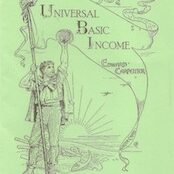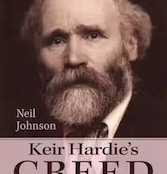This issue of Democratic Socialist is dedicated to continuing the discussions and debates raised by the ILP’s weekend school, held in Scarborough at the beginning of May. Entitled ‘The Challenge of Mutuality’, the school brought ILPers and non-ILPers together to discuss the politics of cooperation, mutuality and social enterprise, and examine their relevance to the renewal of the democratic socialist agenda.
Among the issues more than 30 delegates sought to address were:
- what role can mutuality play in a rapidly changing society and globalising economy?
- what will be the future of mutuals in delivering public services?
- what part can mutuals and cooperatives play in extending democracy?
- what should the Labour government be doing?
- what lessons can be learned from past generations of cooperative and mutual organisations?
The weekend school was composed of a mixture of plenary sessions and small discussion groups, stimulated by three keynote speakers:
Sean Creighton, a historian and researcher, who provided a historical perspective of mutuality and examined the relationship between mutual organisations and radical politics.
Stephen Yeo, a visiting professor at the London School of Economics’ Centre for Civil Society, whose talk was entitled ‘Putting cooperation into politics, not Politics into Cooperation’.
David Byrne, from the University of Durham, who looked at the privatisation of the welfare state, and the potential of mutuals to deliver public services, asking, is this an opportunity or threat for democratic socialism.
Sean Creighton stressed that the idea behind mutuality – of working people coming together to provide collective solutions to their mutual needs – stretches back hundreds of years. “Through mutual organisations people developed their own forms of democracy and participatory society,” he said. “This is what we now call civil society.”
He argued that the “continuing legacy” of mutuals could be developed as a basis for providing public services but stressed that “putting the theory of mutuality into practice” was difficult. The problem with new Labour’s approach to mutuals, he suggested, was that it “sees mutualism as just another way of plugging the gaps” between the state and private sector, not potential “building blocks for a different kind of society”.
Stephen Yeo picked up the theme, arguing that cooperative and mutual enterprises (CMEs) could challenge both public and private sector modes of organisation and service delivery, because they “dissolve and re-associate the categories in a new form”. Potentially, they can be “public forms which are not statist” and “private forms which are not capitalist”.
He claimed that until the 1920s the cooperative movement had been trying to “make liberal democracy available to everyone”. But since then we had been subject to the “common sense idea that we live in a democracy”, where democracy has been “defended as a finished fact, not an open ended process”. This leaves us with “a limited and diluted democracy”, he said. Where capitalism has separated economics and politics, cooperative enterprise can re-unite them.
With mutuals, he said: “The state can be the guarantor of standards without necessarily being the provider of the service.”
David Byrne looked at this notion in more detail, putting it in the context of global capitalism, the widespread “recommodification” of public services, and the World Trade Organisation’s General Agreement on Trade in Services (GATS). The question of whether mutuals should replace the public sector, or deliver public services, must be considered in a social and economic context where “markets rule”, he said.
The danger which socialists must guard against, he said, is that mutuals become “Trojan horses” for large corporations and private capital eagre to develop the profit-making potential of welfare services. “The health, education and welfare sectors of the western world are massively attractive to the private sector,” he said. “The notion that we have to keep profit out is most important.”
The rest of this issue of Democratic Socialist is devoted to articles by two of the speakers – Sean Creighton and David Byrne – based on their presentations to the weekend school. We will continue to explore the issues raised here and in Scarborough in the next issue, which we hope will include an interview with Ed Mayo, director of the New Economics Foundation and author of The Mutual State, and an article on the role cooperatives are playing in neighbourhood renewal and regeneration.



22 October 2010
[…] The challenge of mutuality The ILP’s Weekend School in Scarborough at the beginning of May 2002 brought ILPers and non-ILPers together to discuss the politics of cooperation, mutuality and social enterprise. Mutuality and radical politics Sean Creighton traces the historical association of mutual organisations and the labour movement, and questions what the ‘new mutualism’ can offer to radical politics in the future. The temptation of honest mutuality David Byrne examines the recommodification of the welfare state, and says mutuals must decide which side they are for – corporate capital or socialism. […]